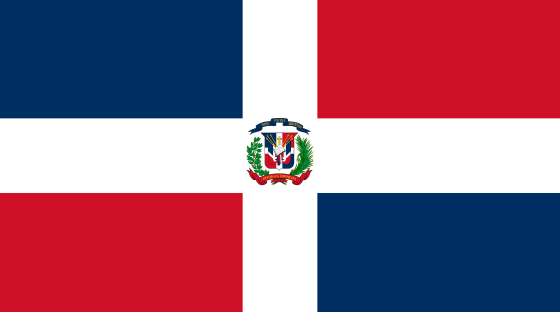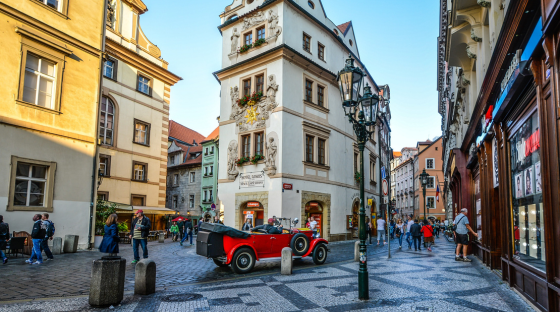-
Services
-
Software Project Delivery
-
Services
-
Solutions
-
Technologies
-
-
Network
-
Discover
-
Regions
-
Industries
-
Must-Read Guide
-
2026 Global Software Outsourcing Rates and Trends GuideDiscover why rates are just one aspect of the Accelerance Global Software Outsourcing Rates & Trends Guide, which offers valuable insights into the software development landscape.
-
-
-
Resources
-
Our Resources
-
Newest White paper
-
Aviation Ecosystem Modernization: A Holistic Approach for Meaningful TransformationModernize aviation by integrating people, processes, technology, and data
-
-
New eBook
-
 The True Cost of Software DevelopmentHidden costs can wreck your budget. Our new eBook breaks down the true cost of outsourcing—get your copy to stay ahead.
The True Cost of Software DevelopmentHidden costs can wreck your budget. Our new eBook breaks down the true cost of outsourcing—get your copy to stay ahead.
-
-
Featured White paper
-
Flow & Process OptimizationIn this white paper, you'll learn to streamline workflows, improve change management, and accelerate results.
-
-
-
About
-
About Accelerance
-
Our History
-
Accelerance: Our HistoryThere's great talent everywhere and great teams everywhere, which is the basis of the Accelerance model.
-
-
Software Without Borders
-
New Episode Every Week!Tune into our podcast Software Without Borders, the essential listen for technology leaders and business owners in the software sector who crave insights from the industry’s top minds.
-
-
Andy's Book
-
Synergea: A Blueprint for Building Effective, Globally Distributed Teams in the New Era of Software DevelopmentPeople are first and locations are secondary when it comes to software development success.
-
-
- Our Clients
Dominican Republic

Overview
The second-largest economy in the Caribbean, this lush island nation between Cuba and Puerto Rico is a two-hour flight from Miami. The US is its most important trading partner, accounting for almost 60% of the export market. However, in recent years the service sector has overtaken agriculture as the country’s largest employer, due to expansion in telecommunications, tourism, and free trade zones.
The Dominican Republic is a member of the World Trade Organization’s Information Technology Agreement, through which 82 nations have collaborated to eliminate tariffs on trade in hundreds of ICT products, giving the sector a significant boost in growth. The Dominican Republic also collaborates with its partners in Costa Rica, Ecuador, and Panama as part of the Alliance for Development in Democracy, an initiative to promote democratic strengthening and economic growth through the tightening of the three countries’ commercial, demographic, and cultural ties.
Nationwide, the Dominican Republic hosts 87 free zone industrial parks, which support 820 companies and produce more than $8.1 billion in exports annually. Significant sectors operating out of them include business process outsourcing, IT support, and call centers.
The Accelerance Global Network is the most curated list of high-quality global teams ever assembled.
50
Developers
Total number of developers in our certified partner network by country
3
Certified Partners
Total number of certified partners in our global network by country.
3.5hrs
Time Travel (From NY)
Average flight time from NY to the major cities in the country.
29
Partner Innovation capability
The score reflects investment in STEM progrms and IT funding by country.
81
Partner Skill Level
Level of workforce skills and quality of education, including factors such as digital literacy, interpersonal skills, etc.
60
Partner Global Competitiveness
National productivity based on 12 core pillars, including government policy, infrastructure, economic stability, etc.
Medium
Software Outsourcing Readiness
Overall rating, based on the maturity of the tech sector, socio-political conditions, and on-the-ground research by Accelerance.

Talent Pool & Education
The Government's “Agenda Digital 2030’’ strategy seeks to improve the country’s competitiveness and increase the transparency and efficiency of the public administration. In the private sector, MasterCODE, the non-profit Libertad Digital’s tech-talent development program, is offering 5,000 full scholarships to educate “young people seeking opportunities to work in the tech world” who lack the resources to pay.
The Technological Institute of Santo Domingo (INTEC) is the Dominican Republic’s top-ranked university and has several US partnerships giving engineering students opportunities for international study. Other important players include the Technological Institute of the Americas, which specializes in fields such as software development, information networks, and computer security, while the Las Americas Institute of Technology promotes specialized education based on innovation and entrepreneurship across 15 technology areas, enrolling about 4,500 students per quarter.
Language
The official language is Spanish, with most of the population speaking a native dialect referred to as Dominican Spanish. However, learning English is mandatory in local schools and it is widely spoken in the main centers and among the professional business community, due to the country’s strong economic ties with the US.

Economic Outlook
Over the past decade, the Dominican Republic has recorded the second-fastest economic growth in Latin America. The country’s per capita income is now 32% of that of the United States, a significantly higher standard of living than the regional average of one-quarter. Reforms have strengthened the country’s macroeconomic frameworks, resulting in a 50% reduction in poverty rates.
“What is remarkable about the Dominican Republic’s progress is not just the level of convergence but also its speed compared to other countries in the region,” reports the International Monetary Fund. “This remarkable performance can be attributed to several factors, including implementation of sound policies, particularly by the central bank, improvements in policy framework, a more diversified export base, and the economy’s structural flexibility to changing global conditions.”
After a muted 2023, growth is expected to accelerate in the coming year, although dependence on imported oil leaves the country particularly vulnerable to international price swings. Export revenue has also taken a hit from the closure of the border with Haiti. The Government has committed to increasing renewable energy to 25% of the country’s total generation by 2025 and a number of international companies have announced solar and renewable projects in the Dominican Republic. However, with a general election looming in May 2024, the current administration’s pro-market agenda is likely to slow.
Political Conditions
Dominican Republic President Luis Abinader won a second term in the May 2024 elections, clinching victory in the first round. A wealthy former businessman with experience in the tourism and construction sectors, he led his centrist Partido Revolucionario Moderno party to victory in 2020 after campaigning on an anti-corruption platform, breaking 16 consecutive years in power for the Partido de la Liberación Dominicana.
“Today our country shines with its own light,” Abinader told supporters after his rivals conceded defeat, calling for a country “without distinction, without sectarianism, and without party colours.” He has pledged not to run again after completing this second four-year term.
The hugely popular president has vowed unity and impartial leadership, buoyed by the country’s strong economic recovery and large-scale anti-corruption probes. Abinader is expected to continue pursuing public-private partnerships in tourism development and the construction of a border wall with Haiti. In a recent address to the UN Security Council, he called for international assistance to address instability across the border.
Learn more about our customer stories.
Looking for a customer story in a specific technology or industry? Discover compelling customer narratives within a specific technology or industry that resonate with your unique software development needs.
